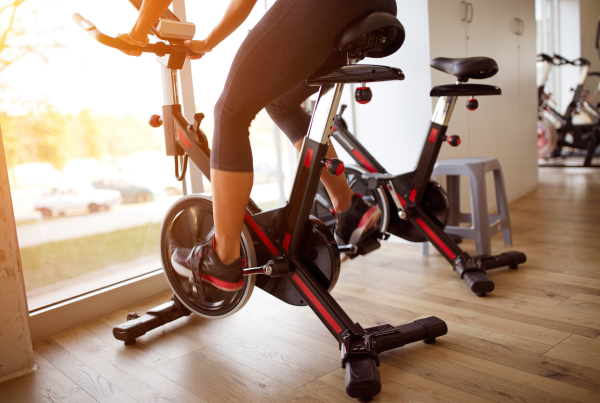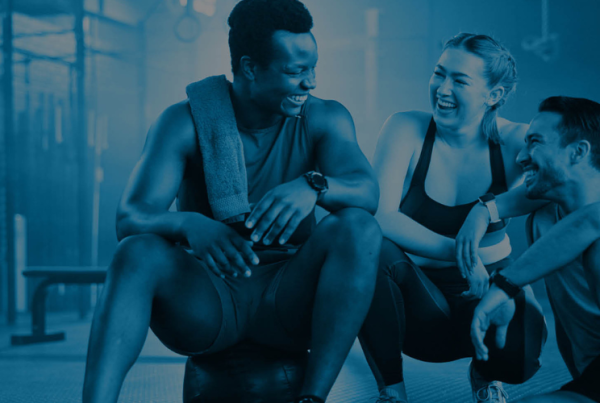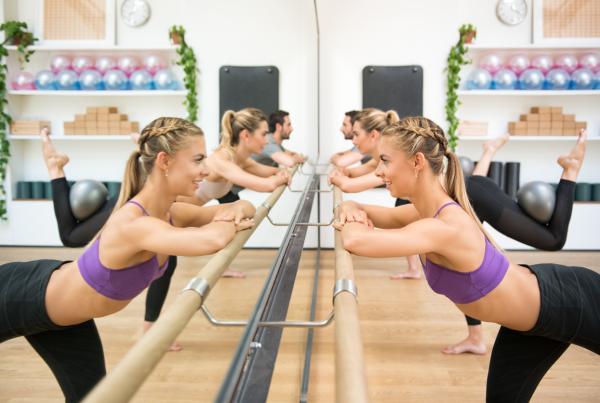There’s an elephant in the room, says Marietta Mehanni, and it’s the mental health of group X instructors. Here, Marietta discusses how to maintain a healthy mindset to support a long-term career.
As an instructor, you are not physically alone but often you may feel there is no one in sight – no one who understands the challenges of teaching, dealing with participants and the effort required to be upbeat and positive every single day. It’s an interesting conundrum. A quote found online sums it up perfectly: “Emotionally: I’m done. Mentally: I’m drained. Spiritually: I’m dead. Physically: I smile.” We work in an industry where the job description literally asks us to be a whole bunch of things and there is an expectation (rightly so) that you are positive, energetic, loving, optimistic, intelligent, confident, happy, relaxed, fantastic, cheerful, masterful, beautiful, fun, creative, wonderful … the list goes on. Yes, there are days that you are all these things and more, but what happens on the days when life goes sideways and conjuring up these aspects of your personality seems impossible? If you don’t have any strategies to get you back on track, this can be a downward spiral that can end in burnout, leaving the industry or just coping but not doing your best work. In the fi tness industry, you can’t simply turn to people you work with to discuss issues, whether it’s your participants, fellow instructors or even your manager. It’s an industry that, ironically, does not support group fitness instructors having mental health issues and the stigma it can create may eventuate with instructors losing their classes. This means that your strategies need to be personal, private and effective at reconnecting you with your inner joy and purpose.
How to maintain a healthy mindset to support a long-term group X career
Seek an industry colleague who you trust. Talking to friends or family about mental health issues regarding an industry they are not familiar with can be challenging. There are aspects and nuances about teaching group fitness that non-instructors don’t understand. Talking to someone who understands the industry and the challenges that present themselves saves a lot of explaining. Knowing they can be trusted and are not judging you regarding your thoughts and emotions is key. Depending on how you are dealing with your mental health issues, all you may need is an outlet – someone you can talk to so you can get what is churning up inside, out. Sometimes you feel you are constantly sucking in air and a conversation is all you need to finally exhale. This person is someone you can turn to whenever you need to talk. But, if you need someone who can take the next step with providing advice, you may require a mentor.
Find a mentor. There are all types of mentors: people who help you develop as an instructor, people who nurture you when you are starting out or those who may not necessarily work in the industry but have a wider scope of life experience that helps put things into perspective. In comparison to an industry colleague, mentors generally have more experience either in the industry or in life. They are people you listen to and respect their advice. Mentors are not people who always agree with you but who impart teachable moments that provide an insight that was not apparent to you before. Often, from a different vantage point, issues can lose some of their heaviness and, from a refreshed outlook, provide solutions that didn’t seem to exist before. Basically, mentors provide the ‘aha’ moments that help you work through what seemed impossible. Often, instructors will have different mentors depending on the stages of their career. At the beginning, it is all about developing confidence, teaching strategies and dealing with an industry that is unfamiliar. Later in an instructor’s teaching career, it may be about dealing with politics, energy levels and interpersonal relationships. Sometimes, the mentor is someone who encourages you to achieve bigger goals like presenting workshops, setting up your business or exploring other formats that require more skills. Regardless, mentors appreciate the potential in you that you may not see for yourself and instinctively know when it is time to motivate you to reach for the next rung on the ladder. This avoids stagnation, lethargy and losing the passion that started you in this career. Group exercise instructors thrive on passion and often that can be gained from what started the fire in the first place – connecting with like-minded people.
Connecting with other instructors. When you are teaching your class, you are alone on stage. You may have the opportunity to connect briefly with another instructor before and after your class as you exchange microphones and set up music. This can often be the only live interactions you have with your peers. Most other communication is usually via social media, text or email and often it is for the purpose of getting covers or discussing issues like faulty microphones or equipment breakdowns. This lack of interaction with your peers can lead to a sense of loneliness, especially prevalent in the current climate, where opportunities to share your experiences are not as easy to engineer. There is no proverbial water cooler or Friday night drinks where instructors come together to debrief about their week or classes. So, it’s easy to understand why instructors can feel isolated in an industry that is entirely about people. As presenters and creators of My Group Move, Maria Teresa Stone and I have often seen the warmth and connectedness that grows during an all-day workshop with a group of instructors. Many of them may not know anyone else but everyone is aware of the common ground they share. Often, there is a conversation that arises that allows instructors to connect, share and appreciate that they are not alone with the issues and challenges that arise in the group exercise instructing world. Often, instructors provide each other with solutions they have found to be effective in dealing with tricky members, management issues or maintaining personal energy and health. It literally becomes a group counselling session that complements the education delivered on the day. Live workshops, be it in person or online, play a huge role in facilitating these golden opportunities of bonding and congruence. It is short-sighted to see workshops only as a way to pass on information. They play a much more significant role in creating a community of instructors who share the same goals in improving the health and wellbeing of others. There is power in numbers and it adds kindling to stoke the passion that each instructor needs to deliver group exercise classes that make a difference to others.
Where to start?
Regardless of whether you’re feeling great or not so good right now, setting up a support system is important. Waiting for when things get ‘really bad’ is not a good strategy, because often when you are feeling terrible, the last thing you want to do is reach out. You may feel you do not want to burden others or what you’re going through is trivial compared to what others have on their plate. This will lead to helplessness, hopelessness and depression. Compare it to your immune system and what you do to ensure you have a healthy body. You have strategies for enough sleep, nutritious food, hydration, sunshine and movement. Maintaining a healthy mindset also requires a plan to ensure the lows do not spiral out of control and you are able to continue to be your very best self.
Why not check out Marietta’s online course ‘Move to the Beat’ – it will empower you to use music like never before.








